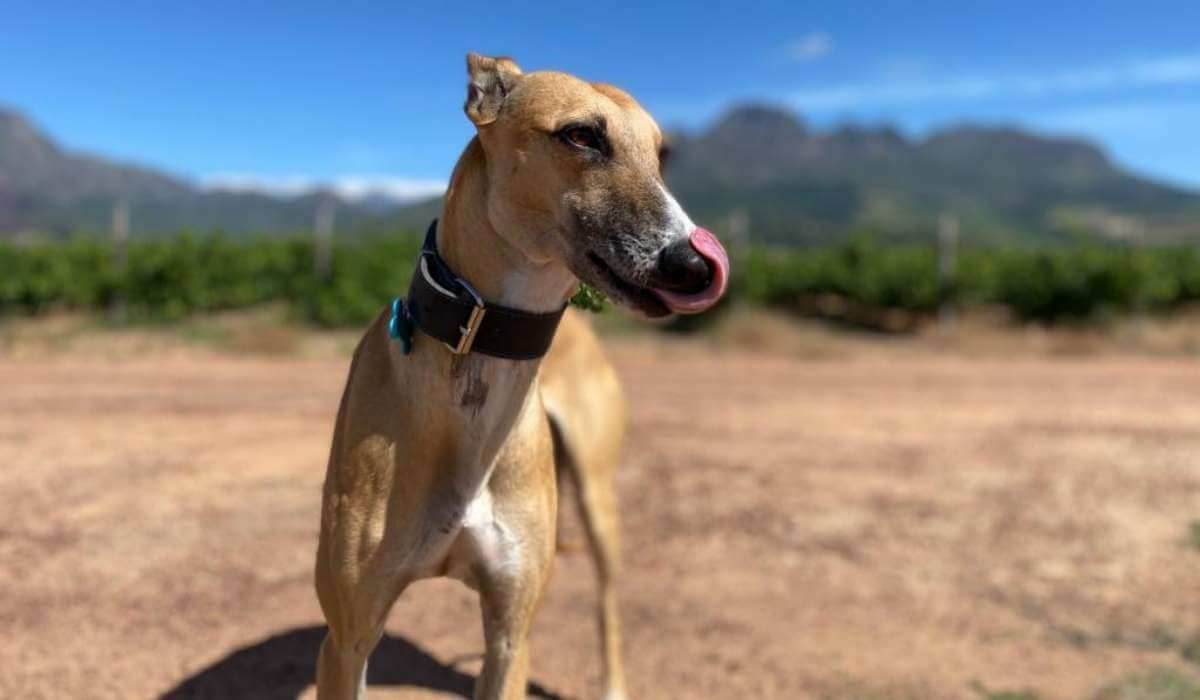The Hidden Danger of Xylitol Poisoning: Dallas’s Story
As a first-time dog owner, I had no idea how deadly Xylitol could be for dogs. Even experienced dog owners might not be aware of the severe risks this common sugar substitute poses to our furry friends. My gorgeous Greyhound, Dallas, almost paid the ultimate price for this knowledge gap.
Xylitol is widely praised as a healthy alternative to sugar for humans, boasting 40% fewer calories and a low glycaemic index, making it ideal for people managing conditions like diabetes or obesity. But what’s safe for us can be deadly for dogs. Even small doses of Xylitol can cause life-threatening complications.
Here’s what happened to Dallas and how her story serves as a cautionary tale for dog owners everywhere.
The Day Everything Changed
It was a typical Monday morning. I left home at 5 a.m., stopped for petrol, and realized I’d forgotten my laptop charger. When I returned to fetch it, Dallas was lounging on the couch as usual. Everything seemed fine—until I walked into my room and noticed an empty tub of sugar-free gum on the bed.
The container was covered in bite marks, and a single piece of gum, slick with dog saliva, was stuck inside. Dallas had eaten approximately 20 pieces of gum! Alarmed, I googled “chewing gum ingestion dogs” and was immediately hit with a chilling warning:
“If your dog has ingested sugar-free gum containing Xylitol, stop reading and seek urgent medical attention.”
To my horror, Xylitol was listed as the primary ingredient on the gum’s label, but there was no information about how much Xylitol each piece contained. The situation was more dire than I had realized.
The Race Against Time
Thankfully, I’d recently visited Petworld to discuss pet insurance and had been advised to contact Tygerberg Animal Hospital (TAH) for emergencies. I quickly called their 24-hour emergency line. The veterinarian confirmed my worst fears: Dallas’s life was in danger, and we had no time to waste.
I rushed Dallas to TAH, arriving within an hour of her ingesting the gum. Though she appeared fine initially, the vet explained that Xylitol causes two primary issues in dogs:
- Hypoglycaemia: Xylitol triggers a rapid insulin release, causing dangerously low blood sugar levels.
- Liver Toxicity: Even small amounts of Xylitol can overwhelm a dog’s liver, leading to acute liver failure.
Emergency Treatment
The vet administered medication to induce vomiting, which brought up four partially chewed pieces of gum. Dallas was then put on a drip to stabilize her blood sugar and received activated charcoal to prevent further Xylitol absorption.
Later that day, her blood tests revealed devastating liver enzyme levels—567 Alanine Aminotransferase (ALT) units per litre, over 800% higher than normal. The outlook was grim, but the veterinary team acted quickly, administering medications to support her liver.
Dallas stayed in the hospital for two nights under close observation. Her liver enzyme levels gradually improved, dropping to 260 by the second day and 75 a week after discharge.
The Cost of Emergency Care
The medical care Dallas received was lifesaving, but it came at a high cost—over R10,000. This expense could have been avoided had I activated pet insurance beforehand. Without it, many pet owners might face impossible financial decisions in emergencies like this.
The Aftermath
Dallas made a full recovery and has returned to her playful, loving self. Her story, however, underscores the importance of awareness and preparedness. Most dog owners I’ve spoken to since were unaware of Xylitol’s toxicity, and many common products—like sugar-free gum, candy, and baked goods—pose a hidden threat.
Key Takeaways for Dog Owners
-
Learn About Xylitol
- Xylitol is highly toxic to dogs and is found in sugar-free gum, candies, baked goods, toothpaste, and even some peanut butters.
-
Act Immediately
- If your dog ingests Xylitol, don’t wait for symptoms to appear. Seek veterinary care immediately.
-
Be Prepared
- Save the contact information for 24-hour emergency vets in your area.
- Consider investing in pet insurance to cover unexpected medical expenses.
-
Spread Awareness
- Breeders, shelters, vets, and pet product manufacturers should educate dog owners about Xylitol poisoning. Sharing information can save lives.
A Final Note
With the festive season and its abundance of treats, the risk of accidental poisoning increases. Let Dallas’s story be a reminder to keep sugar-free products out of reach and educate your friends about the dangers of Xylitol.
This story is anecdotal and not intended as medical advice. Always consult your veterinarian for medical concerns.
Dallas’s near-tragedy could have been prevented with greater awareness and preparation. Please share this story with fellow dog owners—it could save a life.
